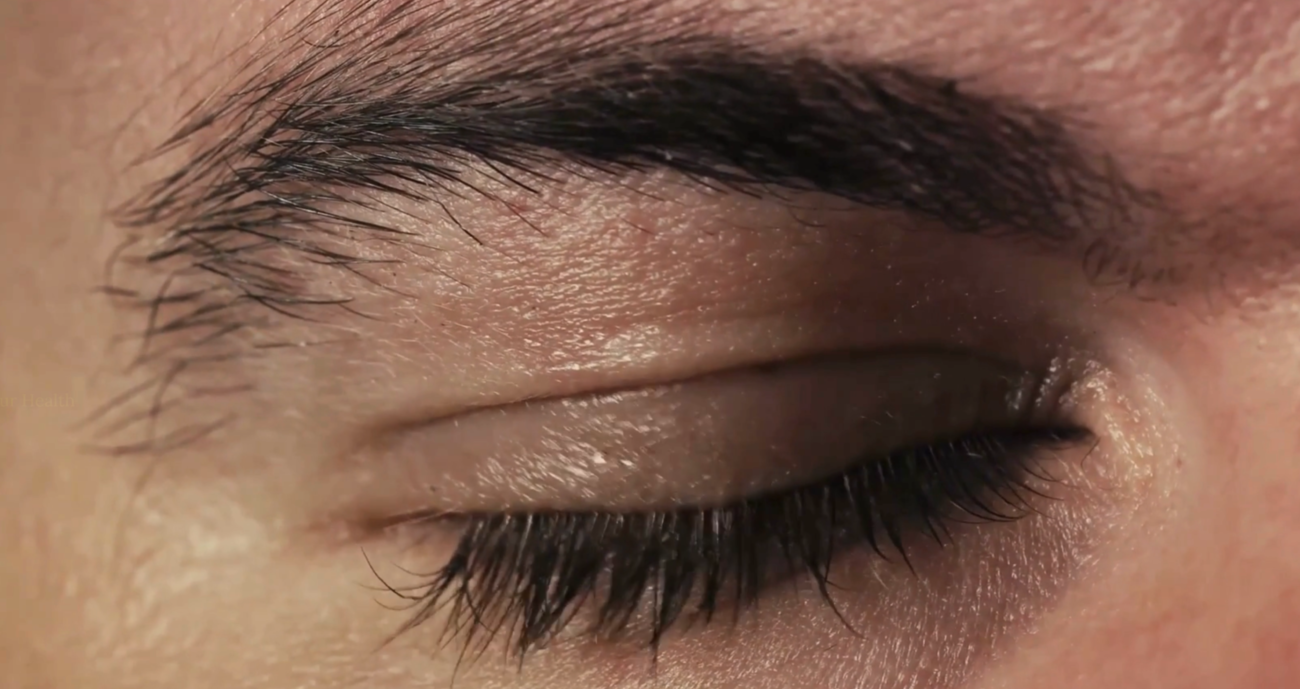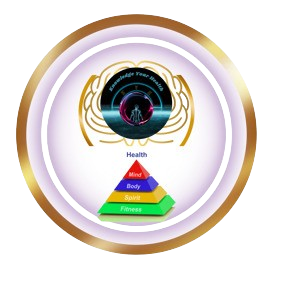Anxiety Factors:
Certain Medications:
In addition to therapy and lifestyle changes, medication can be an important aspect of managing anxiety factors. However, it is important to understand that medication alone may not cure anxiety. It is often used in combination with other forms of treatment.
There are several different types of medications that are commonly prescribed for anxiety disorders. These include antidepressants, benzodiazepines, beta blockers, and antipsychotics. Each type works differently on the brain and can have varying levels of effectiveness for individual cases.
Antidepressants are a common choice for treating both depression and anxiety disorders. They work by balancing neurotransmitters in the brain that regulate mood and emotions. There are three main categories of antidepressant medications: selective serotonin re-uptake inhibitors (SSRIs), serotonin-norepinephrine re-uptake inhibitors (SNRIs) ,and tricyclic antidepressants (TCAs). SSRIs are often the first-line treatment due to their effectiveness and lower risk of side effects compared to other categories. Some common examples of SSRIs include Prozac, Zoloft, and Lexapro.
Benzodiazepines are another type of medication used to treat anxiety disorders. They work by enhancing the effect of a neurotransmitter known as gamma-aminobutyric acid (GABA), which helps calm excessive activity in the brain. While they can provide immediate relief from symptoms, they can also be habit-forming if taken for long periods of time. Examples include Xanax, Ativan, Valium, and Klonopin.
Beta blockers are typically used to treat high blood pressure but can also be helpful in reducing physical symptoms associated with anxiety such as rapid heartbeat or trembling hands. They work by blocking adrenaline receptors in the body which reduces fight-or-flight responses triggered by anxious thoughts or situations.
Antipsychotics may be prescribed for severe cases where other therapies have not been effective or when symptoms are accompanied by psychotic features such as hallucinations or delusions. This type of medication can also be used to treat anxiety in individuals with other mental health conditions such as schizophrenia or bipolar disorder.
It is important to work closely with a healthcare provider when considering medication for anxiety. They can help assess the best option based on individual needs and monitor any potential side effects. It may take time to find the right medication and dosage, so patience is key.
Remember that medication alone may not cure anxiety and is most effective when combined with therapy, healthy lifestyle habits, and a support system. Additionally, it is important to monitor one’s own mindset and always communicate openly with a healthcare provider about any concerns or changes in symptoms while taking medication for anxiety.
Vitamins May Help Anxiety Disorder

Personality Traits:
Personality traits play a significant role in understanding and dealing with anxiety. Our personality shapes our thoughts, emotions, and behaviors, which can either aggravate or alleviate anxiety symptoms. While each individual has their own unique personality, certain traits have been found to be more commonly associated with anxiety.
One such trait is neuroticism, characterized by the tendency to experience negative emotions such as fear, worry, anger, and sadness. Those who score high on the neuroticism scale are more likely to develop anxiety disorders due to their heightened sensitivity to stressors and tendency to ruminate on negative thoughts. They may also have a lower threshold for handling uncertainty and change, making them more susceptible to feeling overwhelmed.
Another trait that can contribute to anxiety is perfectionism. People who strive for perfection often put immense pressure on themselves and set unrealistic expectations. When they fail to meet these expectations, it can lead to feelings of inadequacy and self-doubt, further fueling their anxious thoughts.
People with introverted personalities may also be at a higher risk for developing anxiety disorders. Introverts tend to be introspective and spend a lot of time in their own heads processing their thoughts and feelings. This can make them more prone to overthinking and catastrophizing situations that could trigger anxiety.
On the other hand, extroverts may also experience anxiety due to their outgoing nature. Being highly social individuals who thrive on external stimulation can sometimes leave them feeling overwhelmed when faced with situations that require them to slow down or be alone with their thoughts.
Other common personality traits linked with anxiety include low self-esteem, people-pleasing tendencies, pessimism/negative thinking patterns, difficulty managing emotions (alexithymia), constant need for control or certainty (rigidity), high levels of sensitivity towards criticism/rejection/abandonment (emotional sensitivity), among others.
While having any of these traits does not necessarily mean someone will develop an anxiety disorder, they can make them more vulnerable to it. It is essential to note that our personalities are not set in stone, and there are ways to manage these traits and decrease their impact on our mental health.
In the following sections of this blog series, we will dive deeper into how each personality trait can contribute to anxiety and explore practical strategies for managing them. Keep in mind that everyone’s experiences with anxiety are unique, and what may work for one person may not work for another. With a better understanding of our personalities and how they relate to anxiety, we can begin taking steps towards finding balance and peace within ourselves.
Gut Health Issues:
Gut health issues, also known as digestive problems, are common among individuals experiencing anxiety. The gut, or the gastrointestinal tract, plays a vital role in our physical and mental well-being. It is responsible for breaking down food and absorbing nutrients, as well as regulating immune responses and producing certain neurotransmitters.
Research has shown that there is a strong connection between the gut and the brain, known as the gut-brain axis. This means that changes in one can directly affect the other. When experiencing anxiety, our body’s stress response is activated and can lead to various issues within the gut.
One of the most common gut health issues associated with anxiety is irritable bowel syndrome (IBS). IBS is a chronic condition that affects the large intestine and causes symptoms such as abdominal pain, bloating, diarrhea or constipation. The exact cause of IBS is unknown, but it has been linked to stress and psychological factors.
Another common issue related to anxiety is acid reflux or gastroesophageal reflux disease (GERD). Anxiety can trigger an increase in stomach acid production which can then lead to heartburn or indigestion. Constant exposure to high levels of stomach acid can damage the lining of your esophagus and throat.
Similarly, conditions like gastritis and peptic ulcers have also been linked to anxiety. Gastritis is an inflammation of the stomach lining while peptic ulcers are open sores that develop on the inner lining of your stomach or small intestines. Both conditions are often caused by excessive production of stomach acid due to stress.
Anxiety can also cause changes in your eating habits which may lead to other gut health issues like constipation or diarrhea. Some people tend to overeat when anxious while others may lose their appetite entirely. Changes in diet can disrupt the balance of good bacteria in your digestive system which plays a crucial role in maintaining overall gut health.
Moreover, studies have found that individuals with anxiety may have imbalances in their gut microbiome, which refers to the community of microorganisms in the gut. This imbalance can cause inflammation and affect the production of neurotransmitters like serotonin, dopamine, and GABA, which are essential for regulating mood.
Understanding the relationship between anxiety and gut health is crucial in managing both physical and mental well-being. It is essential to address any underlying gut issues when treating anxiety to ensure long-lasting relief. Seeking professional help from a medical practitioner can provide a comprehensive treatment plan that addresses both psychological and physical symptoms. Additionally, making lifestyle changes such as maintaining a healthy diet, exercising regularly, and reducing stress levels can also greatly improve overall gut health and reduce symptoms of anxiety.

Caffeine and Stimulants:
Caffeine and other stimulants can often be found in everyday products such as coffee, tea, energy drinks, and even certain medications. These substances are known for their ability to increase alertness, improve mood, and enhance performance. However, when consumed in excess or for prolonged periods of time, they can also contribute to the development or exacerbation of anxiety symptoms.
Caffeine is a central nervous system stimulant that blocks the effects of adenosine – a chemical that promotes relaxation and sleep. When this occurs, our body produces more adrenaline and dopamine which creates feelings of alertness and euphoria. While small amounts of caffeine can be beneficial in boosting energy levels and improving cognitive function, excessive consumption can have negative effects on mental health.
In people with anxiety disorders, caffeine intake has been linked to increased restlessness, irritability, nervousness and even panic attacks. This is because caffeine activates the fight-or-flight response in the body by increasing heart rate, blood pressure and muscle tension – all classic symptoms of anxiety. Furthermore, it can interfere with sleep patterns leading to fatigue and disrupt medication routine if taken alongside anti-anxiety medications.
Similarly to caffeine, other stimulants like nicotine and amphetamines have also been associated with worsening anxiety symptoms. Nicotine increases dopamine levels in the brain resulting in temporary feelings of pleasure but may ultimately lead to increased anxiety over time due to its addictive nature. Amphetamines on the other hand directly activate parts of the brain responsible for triggering fear responses which can cause heightened feelings of anxiousness.
It’s important for people living with anxiety disorders to be mindful about their intake of these substances as it could potentially worsen their condition or interfere with treatment progress. It is recommended that individuals limit their daily caffeine intake to no more than 400mg – equivalent to about four cups of brewed coffee or 10 cans of soda.
Moreover, many studies have shown that reducing or eliminating nicotine and amphetamine intake can lead to a decrease in anxiety symptoms, sometimes even eliminating them entirely. For those struggling with addiction to these substances, seeking professional help and support groups may be beneficial in managing both the anxiety and the addiction.
Caffeine and other stimulants can play a role in the development or exacerbation of anxiety symptoms. It is important for individuals with anxiety disorders to be aware of their intake and make necessary adjustments for improved mental health. Remember, moderation is key when it comes to consuming any stimulant – always prioritize your well-being over short-lived energy boosts.

Traumatic Childhood Events:
Traumatic Childhood Events:
While childhood is often portrayed as a carefree time of innocence, it can also be filled with traumatic events that leave a lasting impact on one’s mental health. These events may include physical or emotional abuse, neglect, witnessing violence, natural disasters or war, and the loss of a loved one.
The effects of these traumatic childhood events can manifest in various ways and contribute to the development of anxiety disorders later in life. Let’s take a closer look at how specific types of traumatic events can lead to anxiety symptoms.
- Abuse: Physical, sexual, or emotional abuse during childhood can have severe consequences on an individual’s mental health. Children who experience abuse may develop constant fear and feelings of helplessness as their sense of safety and trust is shattered. This can result in issues such as post-traumatic stress disorder (PTSD) and generalised anxiety disorder (GAD).
- Neglect: The lack of proper care and attention from caregivers during critical stages of development can significantly impact a child’s mental well-being. Children who are neglected may feel unloved, unworthy, and insecure, leading to low self-esteem and difficulty forming healthy relationships later in life.
- Witnessing Violence: Experiencing or witnessing violence between family members or within the community can be particularly traumatising for children. It disrupts their sense of security and creates ongoing fear and anxiety about their own safety.
- Natural Disasters/War: Children who experience natural disasters like hurricanes or earthquakes may develop intense fears related to those events that remain with them well into adulthood. Similarly, growing up in war-torn areas where bombings occur regularly leads to significant psychological distress among children.
5.Loss/Grief: The death of a parent or close family member during childhood is another form of trauma that can contribute to the development of anxiety disorders later in life. The grieving process can be complicated and prolonged, and if not properly supported, it may lead to prolonged anxiety and depression.
It’s essential to note that not all children who experience traumatic events will develop anxiety disorders. However, for those who do, it’s crucial to seek help and support from a mental health professional. Therapy can help individuals process their experiences, identify triggers, and learn coping strategies to manage their anxiety symptoms effectively.
Traumatic childhood events can have a lasting impact on an individual’s mental health. Awareness of these potential traumas is vital in understanding the root causes of anxiety disorders and seeking appropriate treatment. By addressing these past experiences and learning healthy ways to cope with them, individuals can find relief from their anxiety symptoms and lead fulfilling lives.

Abuse
Abuse is a complex issue that can greatly impact an individual’s mental health and contribute to the development of anxiety disorders. It refers to any type of harmful behavior, whether physical, emotional, or psychological, that is inflicted on someone by another person. This form of trauma can have long-lasting effects on a person’s well-being and self-esteem.
Some common types of abuse include physical abuse, sexual abuse, emotional or psychological abuse, neglect and financial abuse. Each type can manifest itself in different ways and may have varying degrees of severity. However, all forms of abuse share one thing in common – they erode an individual’s sense of safety and cause extreme distress.
Physical abuse involves using force against someone or intentionally causing harm to their body. This can range from hitting, kicking, punching to more severe acts such as burning or choking. The physical manifestation of this type of assault often leaves visible marks on the victim’s body but it can also lead to internal injuries that may not be immediately apparent.
Sexual abuse refers to any form of non-consensual sexual contact including rape, molestation, and incest. It is a violation against a person’s bodily autonomy and can cause immense psychological damage as well as physical pain.
Emotional or psychological abuse involves manipulating someone through words or actions with the goal of controlling them. This often takes the form of verbal attacks such as insults or name-calling but it can also include threats, intimidation tactics or constant criticism that wear down an individual’s self-worth.
Neglect occurs when a caregiver fails to provide basic needs for a dependent individual such as food, shelter, medical care etc. This lack of care and responsibility towards others’ well-being can lead to feelings of abandonment and worthlessness which may contribute to the development of anxiety disorders.
Financial abuse is when someone exploits another person financially for their own benefit without their consent. This could include stealing money from them directly or tricking them into giving away their assets. The loss of financial stability and security can have a significant impact on a person’s mental health, causing feelings of powerlessness and fear.
The effects of abuse are far-reaching and can result in various anxiety disorders such as post-traumatic stress disorder (PTSD), generalised anxiety disorder (GAD) or panic disorder. Survivors may experience flashbacks, nightmares, hyperventilation, and other symptoms associated with their trauma.
If you or someone you know is experiencing abuse, it is important to seek help from a trusted friend, family member or professional therapist. Everyone deserves to feel safe and secure in their relationships and it is never too late to reach out for support. Remember that healing is possible and no one should ever have to suffer in silence.


One thought on ““Anxiety Factors Explored: Medications, Personality Traits, Gut Health, and More Possibilities” Part-6”